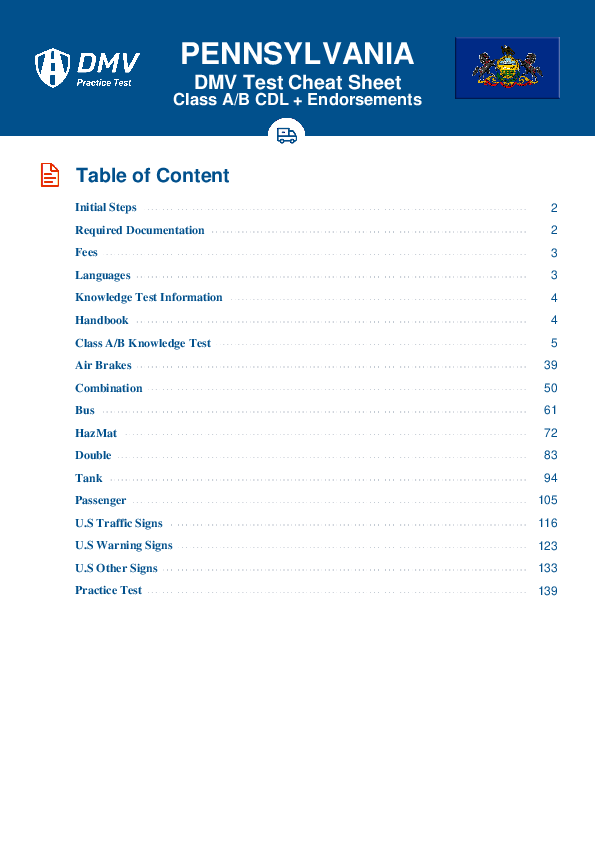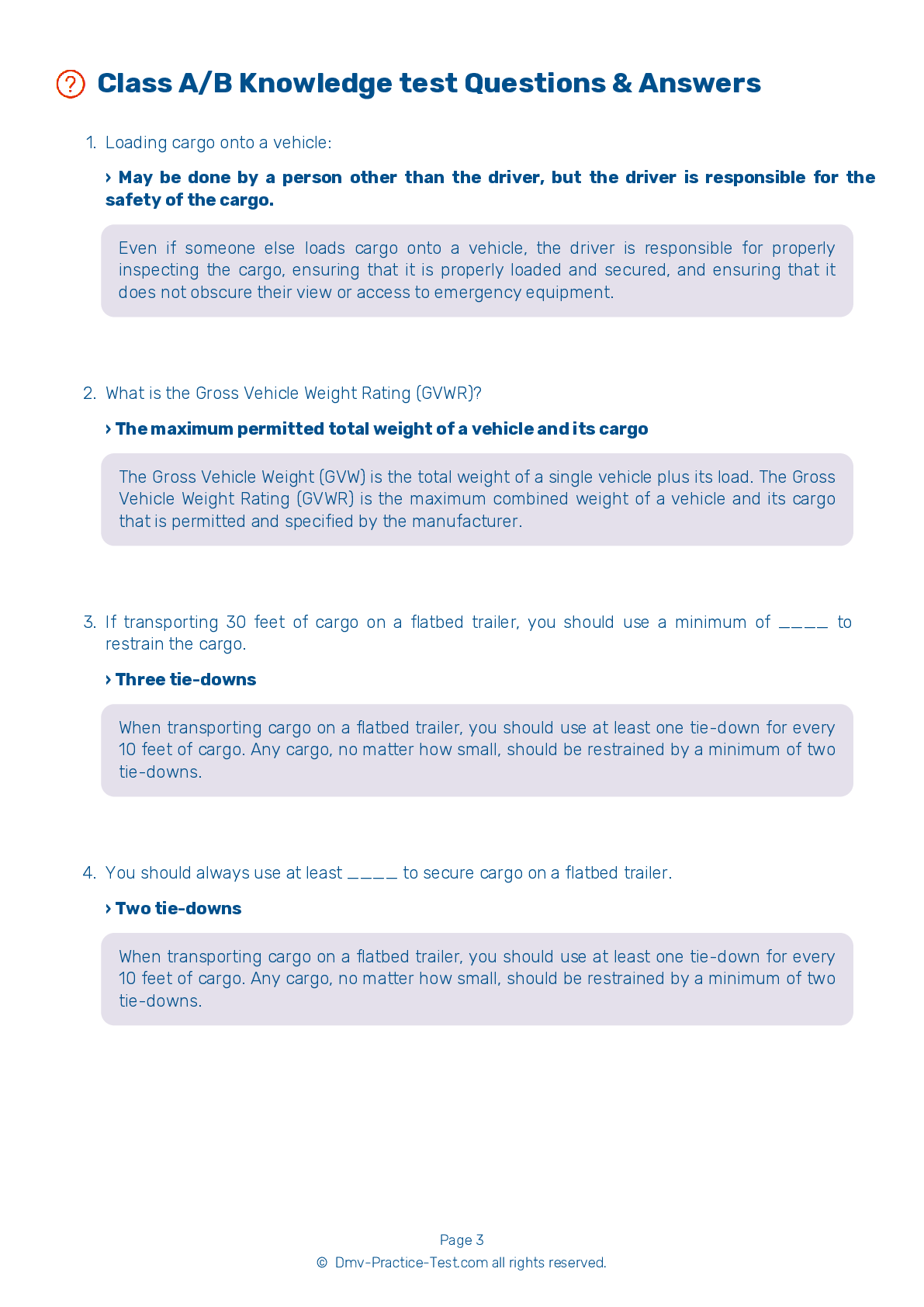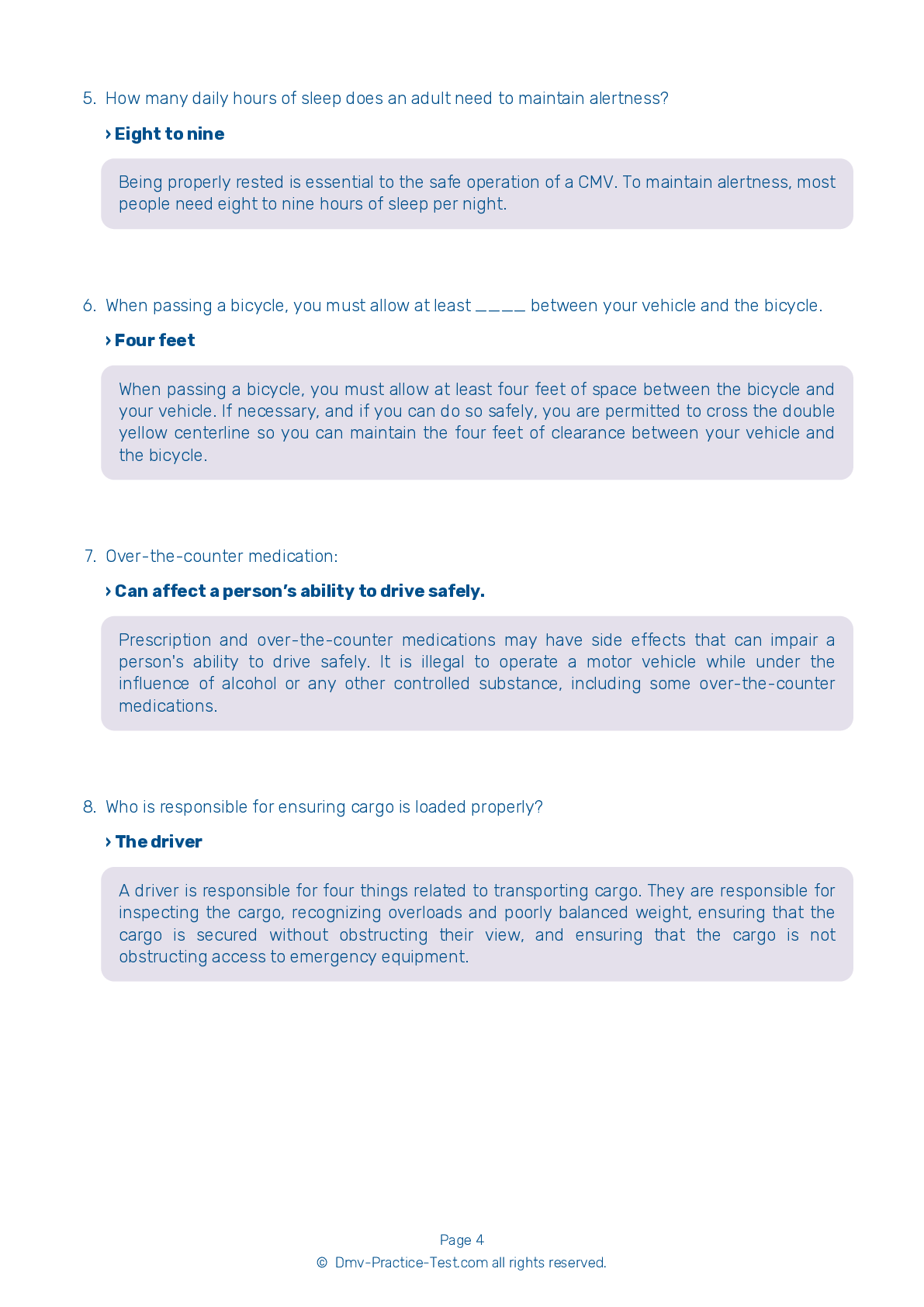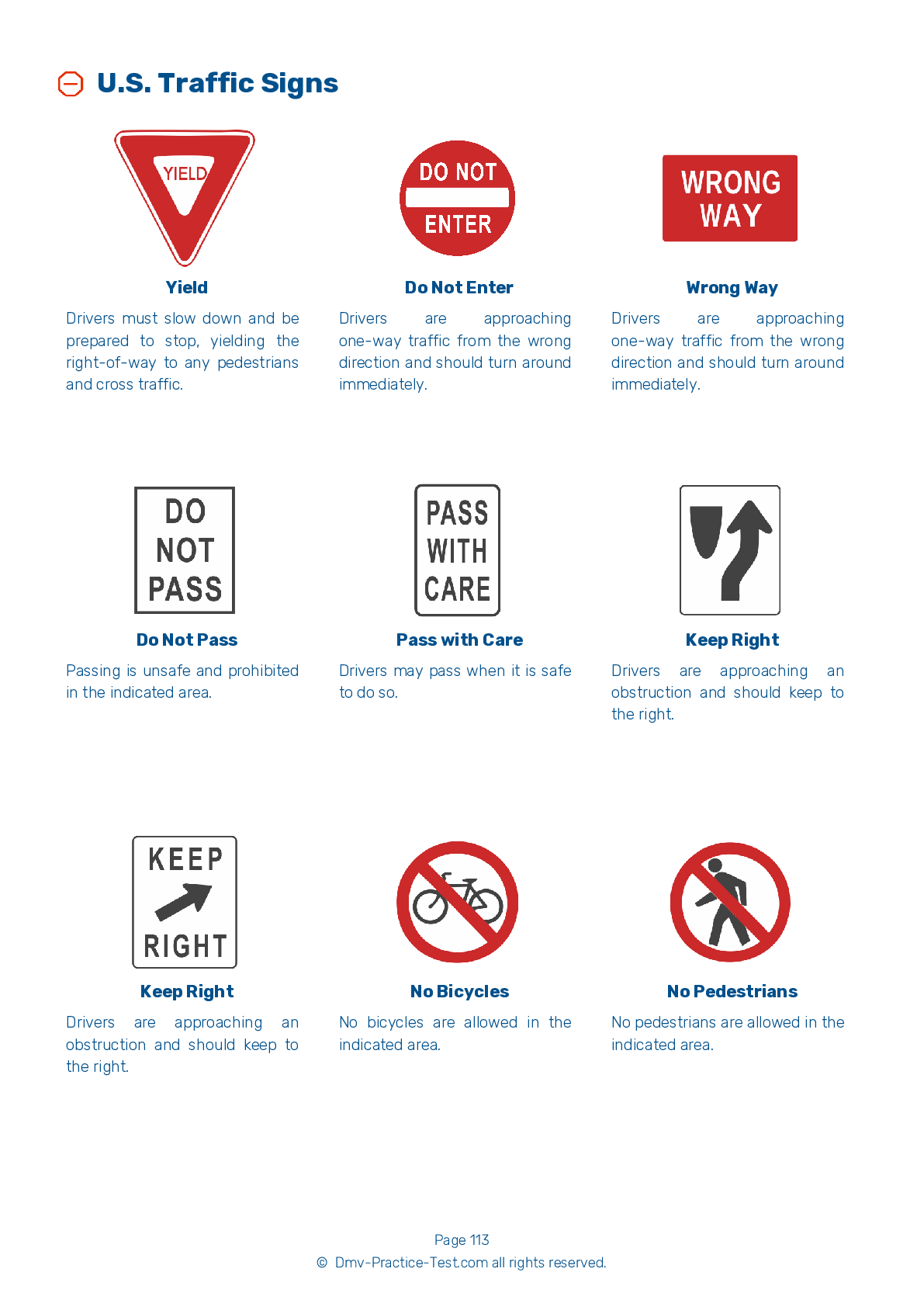Passenger #1
Passenger Endorsement | Pennsylvania 2026 #1
Train for FREE with our Pennsylvania CDL passenger endorsement practice test online. The official exam test consists of several obligatory parts, with all of them checking your knowledge of different blocks of road rules. If you need to obtain a PA DMV passenger endorsement in 2026, practice as much as possible. Free sample tests published on our website will help you check and improve your knowledge and boost your grades. Please bear in mind that DMV requirements for issuing a CDL permit with passenger endorsement may vary from state to state.
20
16
20
1 . If a bus has a brake and accelerator interlock system, the system should:
Operate the rear door.
Urban transit buses may have a brake and accelerator interlock system, which applies the brakes and holds the throttle in an idle position while the rear door is open. This system should not be used as a substitute for the parking brake.
2 . When inspecting the interior of a bus, you should:
Not waste time looking at the handrails and floor lining.
When inspecting the interior of a bus, you must make sure everything is safe and in proper working condition. Make sure all signaling devices, such as bathroom emergency buzzers, work properly.
3 . If you are approaching a drawbridge that does not have a signal light or traffic control attendant, you should:
Stop, look, and make sure the bridge is completely closed before proceeding.
A bus should always stop at any drawbridge that is not controlled by a signal light or traffic control attendant. Stop at least 50 feet before the draw of the bridge, and make sure that it is completely closed before crossing.
4 . Emergency exit signs:
Should be clearly visible and identifiable.
The emergency exit signs on a bus must always be clearly visible. The emergency door light must work properly, if applicable.
5 . Charter bus passengers should not be allowed to board until departure time because:
Waiting to load helps to prevent theft and vandalism.
To help prevent theft or vandalism, charter bus drivers should not allow passengers to board the vehicle until departure time.
6 . On a bus, the driver:
Must wear a seat belt, but only if they have been licensed for less than a year.
The driver's seat of a bus should be equipped with a seat belt, which must always be used by the driver.
7 . When inspecting the interior of a bus, you should:
Remove the emergency exit handles.
When inspecting the interior of a bus, you must make sure everything is safe and in proper working condition. Take the time to ensure every handhold and railing is securely in place and safe to use.
2026 Pennsylvania | Frequently Asked Questions
To secure a CDL Doubles/Triples endorsement in Pennsylvania, you must first have a Commercial Driver's License (CDL). Then, you'll need to pass the Doubles/Triples endorsement knowledge test. Study the CDL manual, particularly the section on Doubles/Triples. After passing, the endorsement will be added to your CDL. Remember, driving experience with these types of vehicles is recommended but not required.
To obtain a CDL Doubles/Triples license, you first need a Commercial Driver's License (CDL). Next, study the relevant sections of your state's CDL manual to prepare for the Doubles/Triples endorsement knowledge test. Once you pass this test, the endorsement will be added to your CDL. It's important to note that while experience driving these vehicles is beneficial, it's not required.
Specialized experience or training is not required for a CDL Doubles/Triples endorsement. However, it's beneficial to familiarize yourself with these types of vehicles. The key requirement is passing the Doubles/Triples endorsement knowledge test. Thoroughly studying the relevant sections of your state's CDL manual will help you prepare for this test. Once passed, the endorsement is added to your CDL.
Yes, an extra written test is mandatory to obtain a CDL Doubles/Triples endorsement in Pennsylvania. You will need to study the relevant sections of the Pennsylvania CDL manual and pass the Doubles/Triples endorsement knowledge test. Upon passing, the endorsement will be added to your existing Commercial Driver's License.
For the CDL Doubles/Triples endorsement in Pennsylvania, you do not need to showcase specific skills or maneuvers during a practical exam. Instead, you must pass a written knowledge test. This test primarily focuses on coupling and uncoupling, inspecting doubles and triples, and checking air brake systems. There is no practical skills test involved.
No, it's not permissible. In Pennsylvania, like all other states, you must have a valid CDL with a Doubles/Triples endorsement to legally operate double or triple trailers. Driving such vehicles without the appropriate endorsement can result in serious penalties, including fines, suspension of your CDL, or even jail time in some cases.
You can append the CDL Doubles/Triples endorsement to your current commercial driver's license. You do not need to initiate a new application for a separate license. However, you must pass the specific written knowledge test for this endorsement. Once passed, the Pennsylvania Department of Transportation will add the endorsement to your existing CDL.
Drivers holding a CDL Doubles/Triples endorsement in Pennsylvania must adhere to specific rules. For instance, they cannot exceed the maximum length of 100 feet for their vehicles. Additionally, they must be familiar with coupling and uncoupling procedures, as well as inspecting doubles and triples. Also, violation of traffic rules can lead to the suspension or revocation of the endorsement.
In Pennsylvania, the maximum legal weight for a vehicle is 80,000 pounds. The maximum length for a single trailer is 53 feet, while the combined length of a double/triple trailer cannot exceed 28 feet per trailer. However, these limits can vary depending on the type of road and specific local regulations. Always check with local authorities for exact restrictions.
Yes, in Pennsylvania, drivers with a CDL Doubles/Triples endorsement must follow specific safety guidelines. They should know how to couple and uncouple correctly, inspect doubles and triples, and handle emergency situations. They must also understand the dangers of "crack-the-whip" effects and prevent rollovers. Drivers should maintain safe following distances and adjust for added length and weight of the vehicle.



